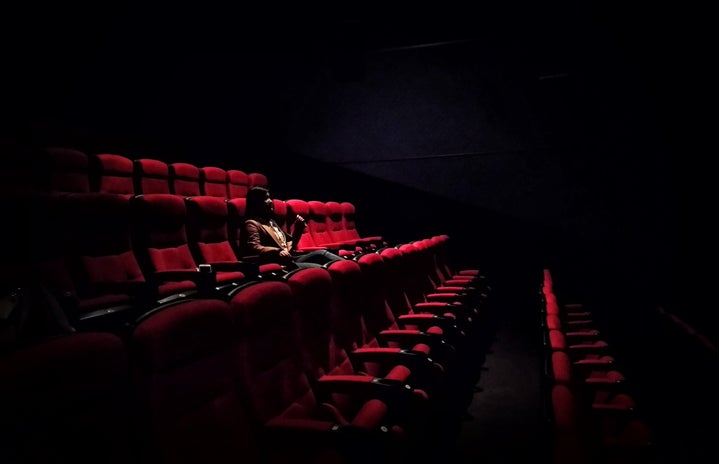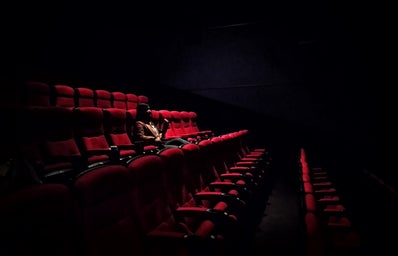Over Thanksgiving break, I went to the movie theaters to see the new addition to The Hunger Games franchise: The Hunger Games: The Ballad of Songbirds and Snakes. This movie is a prequel to the original movies as it shows President Coriolanus Snow’s backstory of how he rose from Capitol citizen to games mentor to president. This movie is based on the same titled book published in 2020 by Suzanne Collins, the original author of the trilogy. When this book was released, upon publication, Lionsgate bought the rights and planned to bring back the same producers, crew, and director Francis Lawerence who directed the last three Hunger Games movies. Ever since Netflix acquired the original movies earlier this year, there has been a Hunger Games resurgence on TikTok and other social media platforms. Everyone in my generation who grew up with the books and movies reacquainted themselves with their love for this franchise, which increased anticipation for the new movie in November (which is genius marketing).
The Ballad of Songbirds and Snakes was the first book I read during the pandemic. As a fan who loved the books and movie franchise, I was so excited to read another novel set in this world by Suzanne Collins. However, the novel failed to impress me. When I read the story, I could not connect with Snow’s character. The lackluster plot and my dislike for Snow’s character caused me to instantly dislike the novel. I, like every other fan, wished that the novel was based on Haymitch Abernathy’s backstory, and I still hope to get this story one day (in any format). Suzanne Collins had 10 years between the publishment of Mockingjay, the last novel in the trilogy, and this novel to wow her readers. The book had some great qualities, such as seeing the origin of “The Hanging Tree” song and how the games became the spectacle that we see in the first book. I enjoyed reading about Lucy Gray’s experience in the raw format of the games before any technology came into play. However, the plot drags and it does not have the same entertainment as the original books, which is purposeful because the games were so different. Yet, it still does not surmount to what you would think 10 years of writing could create. Because of this, I have been dreading this adaptation because I disliked the novel so much. I have been very apprehensive to see the movie because of my experience reading the novel, but I decided to see it to make the decision for myself to see whether if the movie lives up to the hype and does the franchise justice.
The Ballad of Songbirds and Snakes takes place 64 years before the events of The Hunger Games trilogy, and it follows an 18-year-old Snow as he becomes a mentor for Lucy Gray, the female District 12 tribute, in the 10th annual Hunger Games. Lucy Gray’s singing and Snow’s modern ideas about making the Capitol invested in the tributes before the games are what introduce the importance of entertainment to the games itself.
I believe Francis Lawerence took the novel and elevated it completely. It respects the novel by separating the film into the same parts that begin each named part of the novel. The casting, music, and the cinematography truly make this film successful. Tom Blyth, Rachel Zegler, and Viola Davis give amazing performances. I felt like I could truly see Snow’s character arc clearly. The parallels and nods to the original films also make longtime fans feel noticed and loved. For instance, when Lucy Gray, the protagonist, mentions the plant “Katniss,” you can hear Katniss’s character’s original score in the background. Also, when Lucy enters the arena, it is the same revolving cinematic shot that Lawerence uses in Catching Fire when Katniss is entering the arena, and it feels like you are entering it with her. Rachel Zegler’s musical background truly enhances the film and draws you in with the folk music that matches the time period and setting. Also, the chemistry between her and Blyth is palpable, and it makes you swoon, even though you shouldn’t be when you remember all the evil deeds Snow commits in the future films. Their chemistry is what draws you into the character, and it certainly does its best to make him a sympathetic character before he turns “full villain.” You will see girls on TikTok struggling to remember who the real enemy is because of Blyth’s performance and attractiveness.
Decider, a prominent Entertainment website, describes this movie as “the best Hunger Games film since Catching Fire, thanks largely to a new talented young cast and a compelling story that is sure to satisfy old fans while also bringing new ones into the fold” (Menta, Decider). Personally, Catching Fire is my favorite novel and movie from the franchise, and I think Songbirds is as good as Catching Fire, but it is not better. Catching Fire truly had all the elements that are needed for a good movie because the book is so cinematic and well-written. Rather, this film continues to lack something that Mockingjay: Part 1 does as well. It does not feel complete. In interviews leading up to the release of Songbirds, Francis Lawerence has emphasized his regret in splitting the last book into two movies because of this reason. Specifically, Songbirds does not have an ending that truly connects to the rest of the franchise, even with how long the film is. The open-ending of the novel and movie is purposeful, but it causes the audience to not feel a full circle connection that we all want, which is a quality that causes me to dislike the book and movie. Those who call for a sequel do not understand that there is no satisfying ending, which would be fine, if it did a transition to show Snow’s rise to presidential power, rather than just ending with the audio of a famous quote by the older Snow. It is still a very entertaining story, and it is much more entertaining experience than reading the novel, which contains dry prose that drags from the middle of the novel to the end. Because of this, I will always appreciate the prequel novel for how it lays the foundation for this movie, but it still does not compare to what The Hunger Games was, especially Catching Fire.
I do appreciate how this movie has continued the resurgence and love of The Hunger Games because this trilogy is a classic that causes the reader to reflect on America’s history and present because of it focuses on classism, propaganda, politics, and the abusive power of government on oppressed populations. It is a series that I always come back to, and each time I re-read or rewatch, I take something new away from it. It always causes me to reflect on our human nature, and how it may not be so different from what our society is like now. It is a series so close to my heart because it inspired me to continue reading dystopian novels, which now happens to be my favorite genre of literature. Collins created a world that parallels the true horrors of our own society, and how we need to pay attention to what truly lies underneath.
You can see The Hunger Games: The Ballad of Songbirds and Snakes in theaters everywhere now.
Click here if you want to read Decider’s full review of The Ballad of Songbirds and Snakes


